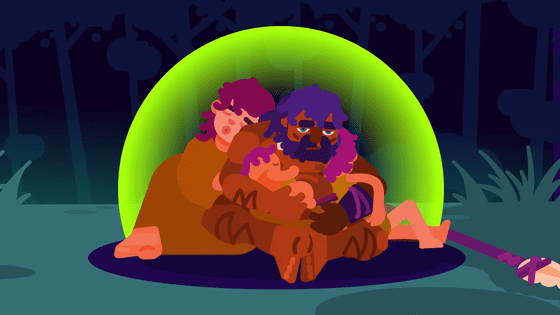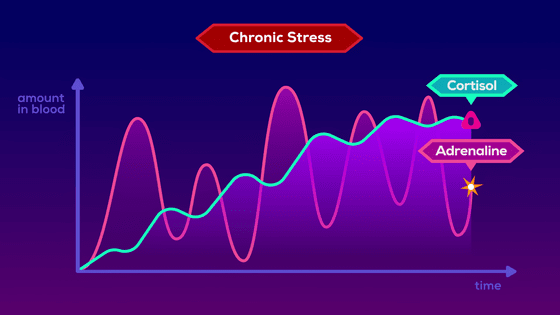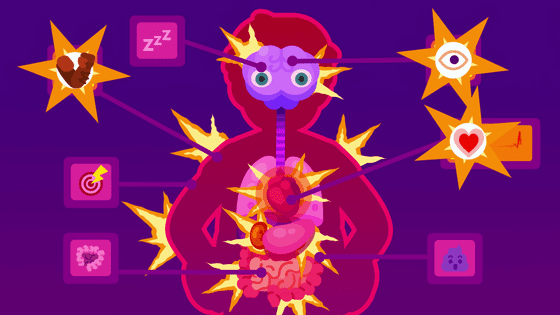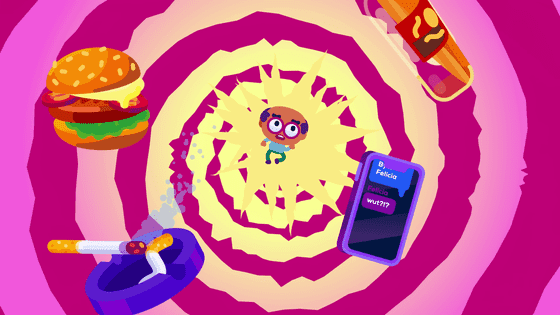What exactly was the original purpose of 'stress'? And why has it become so harmful?

When humans feel stress, their physical and mental states change and they try to cope with the cause of the stress. Kurzgesagt, a science-based YouTube channel, explains how stress occurs and how to reduce stress.
All living things strive to maintain a state of balance in their bodies. This state of balance is called homeostasis , and living things make adjustments to maintain homeostasis, such as by exposing themselves to sunlight and taking in nutrients.

However, the real world is harsh, and homeostasis can be disrupted in an instant by threats or environmental factors. Stress is the response to these emergencies.

As an example of stress, imagine that a human ancestor was attacked by a saber-toothed tiger. The ancestor's brain would perceive the tiger as a significant stressor, triggering a stress response that brings about various changes in the body.

For example, the adrenal glands secrete adrenaline, stimulating the sympathetic nervous system and triggering

However, prolonged stress responses can still leave you feeling fatigued, so a new hormone, cortisol, joins the fight.

Cortisol is the hormone that manages the longer-term stress response. It increases fuel supply while suppressing all bodily functions that are not essential for dealing with stress, such as digestion.

After defeating a foe, our ancestors' bodies, thanks to multiple hormones, shut down the fight-or-flight response and activate the rest-and-digest response, which helps the body recover. We sleep, eat, and rest, resting and restoring the body to its original homeostasis.

Nowadays, humans are no longer attacked by saber-toothed tigers, but our world has changed so rapidly that we have become subject to so many other stresses that our bodies just can't keep up.

Most of the stressors modern humans encounter are abstract, severe, numerous, and usually long-lasting. They are not something that can be dealt with immediately, like fighting a saber-toothed tiger.

The human body easily responds to these stressors. While stress can certainly help us win a competition or improve our performance, if the stress response, which should only be used in short-term or crisis situations, continues for months, it can become chronic stress and be fatal to humans.

Chronic stress keeps your body flooded with adrenaline and cortisol, overactivating your fight-or-flight response and suppressing your rest-and-digest response. This leads to painful, tense muscles, digestive problems, and slows down fat metabolism, increasing your risk of heart attack and stroke, and destroying your immune system.

It also activates the ability to think and react quickly, reducing the ability to think clearly, impairing cognitive function and increasing compulsive desires to eat junk food or use drugs, which, if sustained, can lead to anxiety and depression and even hasten death.

'Stress is not necessarily a bad thing, but after experiencing stress, it's important to properly calm your fight-or-flight response and relax,' Kurzgesagt said. 'Active relaxation can prevent stress from becoming too hard on your body and mind, and can even help you harness the power of stress. If you're in a stressful environment, try to remove the source of stress.'

Related Posts:







